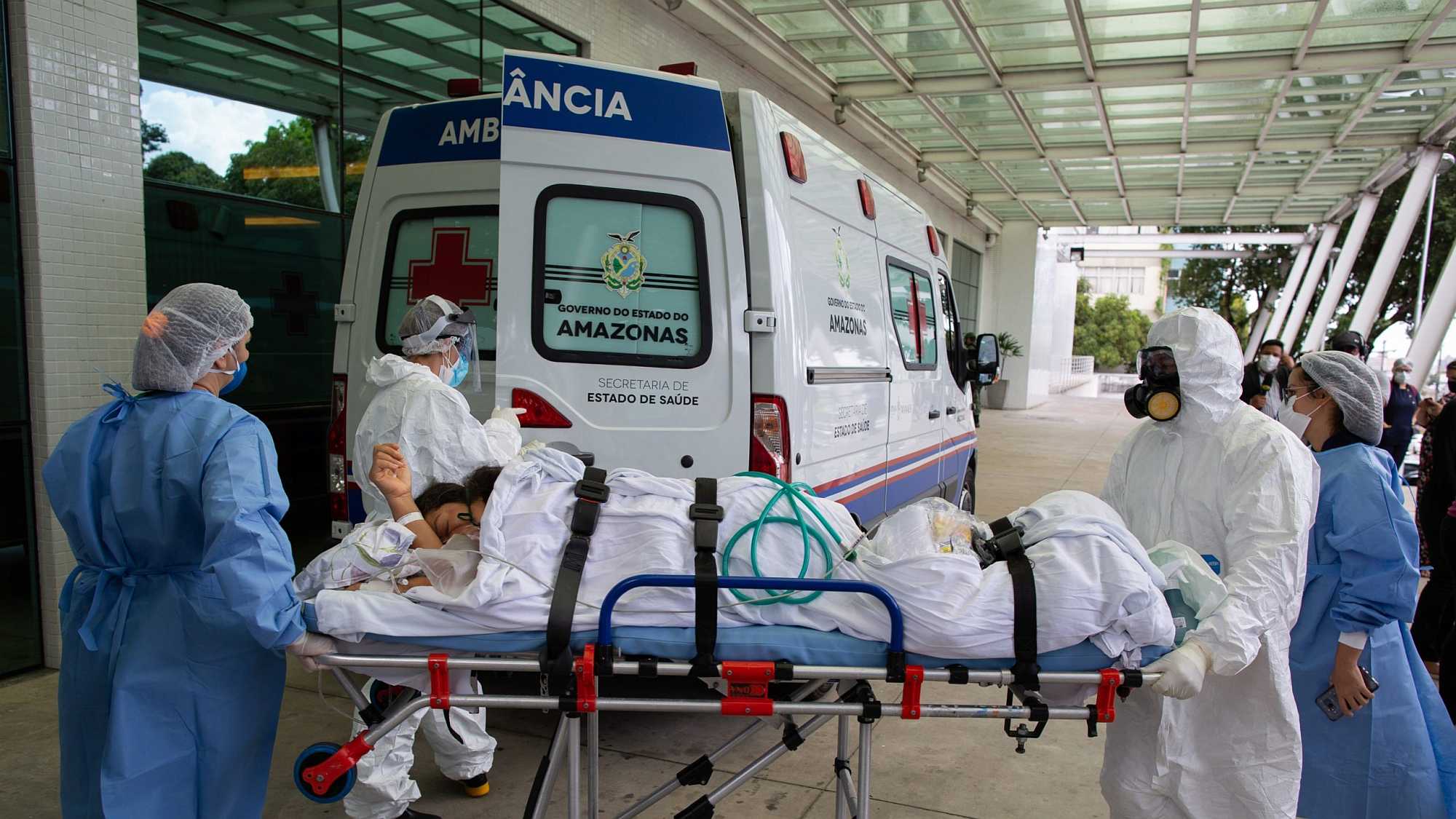Amazonas state in northern Brazil has admitted it is running short of oxygen to help those hospitalized with COVID-19 to breathe as the country struggles with a new variant of the coronavirus.
The city of Manaus has “run out of oxygen and some health centers have become a type of suffocation chamber,” Jessem Orellana, from the Fiocruz-Amazonia scientific investigation institute, told.
Doctors in the city of 2 million people were choosing which patients to treat, officials said, as overloaded hospitals waited for fresh supplies of oxygen cylinders.
Urgent Appeal to US, Neighbors
Authorities said Thursday that dozens of patients will be flown out of state, before appealing for more help from the national government and the United States, to protect the health system from collapse.
“All of the world looks at us when there is a problem as the Earth’s lungs,” Amazonas Governor Wilson Lima told a news conference, referring to the Amazon rain forest. “Now we are asking for help. Our people need this oxygen.”
During the first wave of the pandemic, Manaus consumed a maximum of 30,000 cubic meters (about 1 million cubic feet) of oxygen per day.
Now, the need has more than doubled to nearly 70,000 cubic meters, according to White Martins, the multinational company that provides oxygen to public hospitals.
Venezuela said late Thursday it would send oxygen to help resolve the shortage, despite Brazilian President Jair Bolsonaro not recognizing Nicolas Maduro as the country’s president.
The governor of Amazonas, Wilson Lima, has declared a statewide curfew between 7 p.m. and 6 a.m. to curb a fresh surge in coronavirus cases, partly as a result of a new variant found in Brazil
An expert studying coronavirus mutations in Amazonas said the mutation is “very probably” more contagious than the original, just like new, separate variants found in Britain and South Africa
A paper published this week indicated that the new variant had been circulating in Manaus as of mid-December.
There is concern that it could already have spread throughout Brazil, and has been detected as far afield as Japan.
Britain on Thursday said it was suspending all arrivals from South America due to the new variant.
Threats to Economic Recovery
The risks to an expected economy recovery in Brazil during 2021 are increasing as delays in rolling out a vaccine program against coronavirus continues to be delayed, according to Moody’s rating agency.
Brazil’s government is under pressure amid the slow pace of the country’s vaccine rollout. Inoculations have yet to begin in Latin America’s largest country and health regulator Anvisa has not yet approved any vaccine for use.
In a virtual press conference addressing Brazil’s economic outlook, Moody’s Samar Maziad said a nationwide vaccine will limit the scope for additional social distancing measures and business closures, thereby supporting the economy.
“To the extent that we see delays, that will increase the downside risk to the recovery,” Maziad said.
Moody’s expects Brazil’s economy to grow by 3.3% this year, following an anticipated 5.7% contraction last year, with most of the rebound attributed to base effects rather than a self-sustaining recovery.
Maziad also said that the end of emergency government aid to millions of families, worth almost 300 billion reais (US$ 56 billion) last year and one of the most generous income transfer programs in the world as a share of the economy, could slow the recovery and perhaps fuel social unrest.
“The withdrawal of aid poses some risk to social unrest … (and) with high unemployment, there is some risks (to the economy). But not elevated risk,” she said. “The (main) risks remain on the fiscal side.”
Maziad said that abandoning the government’s spending cap, its key fiscal rule and anchor for market credibility that it is committed to reducing the debt and deficit, would have negative implications for Brazil’s sovereign credit profile.
Crisis-fighting spending last year blew a record hole in the public finances, threatening the cap which limits growth in expenditure to the rate of inflation. Many analysts say a breach at some point soon is highly likely.
DW/MP

